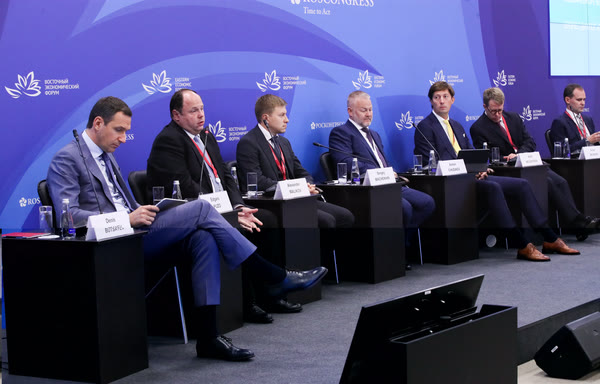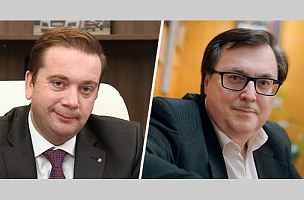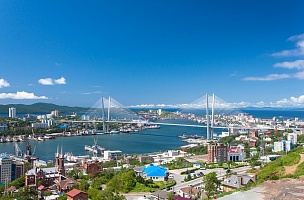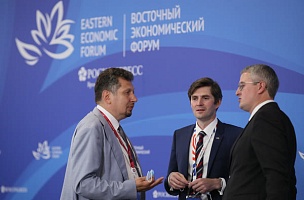Key conclusions
Importance of the green agenda – a point of agreement between Russia and the West
“Relations between the European Union [...] and Russia are going through a challenging time. There are numerous unresolved issues and many disagreements. But there is one clear [problem on which] both parties agree – that the green agenda is a key vector of development both for Europe [...] and for Russia,” Association of European Businesses CEO Tadzio Schilling said.
“In the Far East, [the green agenda] is felt most strongly […] So we are destined to be at the forefront of this movement,” Minister for the Development of the Russian Far East and Arctic Alexey Chekunkov said.
“Of course, the green agenda is very important today for all companies and for all countries [...] This is why most of our assets, which still run on coal, are being converted to gas […] At the same time, though, we continue to develop the main type of generation that our company has – hydro generation [...] RusHydro Group is generally the only company in the world that has all types of renewable energy in its generation portfolio except for nuclear,” RusHydro Project Engineering and International Cooperation Deputy General Director Sergey Machekhin said.
“Climate change is a real, serious problem for all of us. We cannot continue to operate as we used to,” Equinor Senior Vice President of International Exploration and Production Tore Morten Loeseth said.
The Far East and Arctic are open to cooperation with European companies
“The Far East is Russian Asia, but it is also Europe in the centre of Asia [...] It has great potential. We are all looking forward to the end of the pandemic and the possibility of Europe and Asia integrating more closely not only in tourism and socio-cultural terms, but also in business and in the economy [...] European business in the Far East and Arctic have a strategic opportunity to use European technologies here [...], the opportunity to sell good services in the Far East in cooperation with Russian partners, and to target the largest fastest-growing markets of the Asia-Pacific region,” Minister for the Development of the Russian Far East and Arctic Alexey Chekunkov said.
“The French are interested [in industries] in the Far East such as pharmaceuticals, energy, mineral extraction services, roadwork equipment, infrastructure solutions to provide people with a comfortable life, logistics, engineering, construction as well as the production of building materials. So we are covering an extremely wide range of needs of the people and the region, if we are counting on the very powerful continuation of infrastructural and urban development […] The dynamics are very positive. We hope that France will also be able to contribute to the development of its tourism potential,” French-Russian Chamber of Commerce and Industry General Director Pavel Shinsky said.
“We are purposely creating centres of scientific expertise here that are tied to centres of consumption […] We have a geothermal generation segment not very far from here in Petropavlovsk-Kamchatsky. And this still has such immense potential for our cooperation. It can be developed all over the world in terms of technology and equipment. Europe, of course, should also be interested in this. We are waiting [...] for our colleagues to exchange experience and certain technological solutions. We also have something to show them,” RusHydro Project Engineering and International Cooperation Deputy General Director Sergey Machekhin said.
Problems
There is no balance between meeting growing energy needs and the environment
“On the one hand, we need energy. On the other hand, it must be green. The planet’s population is increasing, and we must make sure not to harm nature […] This is a serious problem that we have to combat together,” TotalEnergies Vice President for Russia Francois Borgida said.
Unpredictable conditions diminish the appeal of the Northern Sea Route
“The Northern Sea Route is a priority. Transport can take place faster […] But the economy needs to be taken into account. A transport company […] calculates [its budget] not only based on direct costs […] but also takes into account the many risks that may arise in the event of such difficult logistics. The climate, regulation, and often the availability of communication along the entire route is a rather important criterion, among a host of others. If an owner isn’t sure whether there will be coverage […], then the decision may be made in favour of a longer, but more predictable route along with other risks,” Orange Business Services Vice President for Development Alexander Malikov said.
Solutions
Implement projects to minimize carbon footprint
“We need to reduce emissions from existing power plants […] Many people talk about completely abandoning hydrocarbons, but this won’t be happening in the near future […] We need to neutralize the emissions that remain […] We are working on this. At the same time, we need to think about carbon-free technologies. And we are creating incentives for many [companies] to switch to new sources of energy […] We are aware of the role that natural gas plays in the energy balance. Gas should replace coal and other types of hydrocarbons. […] We will supply more gas to consumers around the world. And we will be expecting an increase in LNG supplies from Russia [...] We are also simultaneously developing alternative technologies to produce electricity,” TotalEnergies Vice President for Russia Francois Borgida said.
“We have reached an understanding with Sakhalin and signed a corresponding agreement on the creation of a hydrogen cluster in the Sakhalin Region. The cluster involves building hydrogen production facilities [...] for local and export purposes […] Our current plans include reaching a production volume of 30,000 tonnes of hydrogen per year by 2024 [...] We invite our partners to cooperate,” Rusatom Overseas Vice President for Marketing and Business Development Anton Moskvin said.
“We are proceeding along this path [of eliminating the carbon footprint] very steadily, increasing the generating capacity of renewable energy sources and gradually reducing the generation facilities that are still harmful to nature […] This year we are putting 77 hybrid stations into operation […] in the Far East and Yakutia,” RusHydro Project Engineering and International Cooperation Deputy General Director Sergey Machekhin said.
Increase the region’s transport accessibility
“We have combined the capabilities of six satellite aircraft over the territory of Russia, and we can now say for sure that the Northern Sea Route is not a problem from the standpoint of communications,” Orange Business Services Vice President for Development Alexander Malikov said.
Harmonize Russian and European standards for environmental and green projects
“There is no uniformity [in Europe] either, but they are still at a higher level of development and mostly focus on certain principles of financing […] In Russia, […] there is no single standard at the moment […] At present, the taxonomy differs quite drastically from the standards that are accepted in Europe. In recent months, though, these criteria have begun converging rather seriously […] In waste, we plan to recognize a particular project as green based on the standards [and whether] it fully complies with the methodologies adopted in the European Union on the basis of best practices [...] The harmonization of these standards will open markets not only for Russian companies in terms of financing green bonds within the country, but will also allow make it possible to attract [...] funds from abroad,” Russian Environmental Operator Public Law Company General Director Denis Butsayev said.
Transition to sustainable modes of transport
“People are becoming more aware of how they move around [...] This also changes the agenda of municipalities, cities, and regions because the urban environment is now a priority around the world. But Europe was the one that set this trend [of micromobility], which is now spreading across Russia,” Smoove General Director in Russia Yaroslav Gamzikov said.
“Right now, this type of transport [cable cars] is actively developing in Russia […] We are actively building a cable car between the two countries from the city of Blagoveshchensk to the Chinese city of Heihe […] We are actively moving into Russia and sharing technologies for the production of cable car transport,” ROMA S.A.S. General Director in Russia Anton Chudayev said.
For more, see the Roscongress Foundation’s Information and Analytical System roscongress.org






